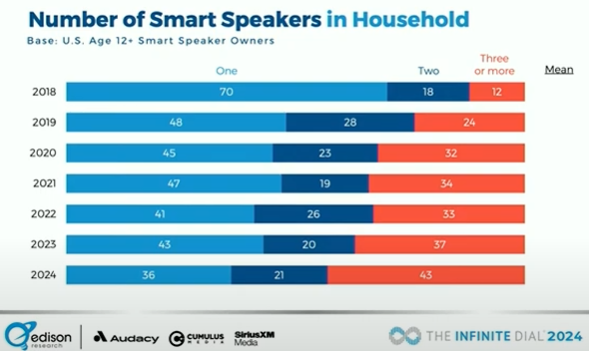Amazon.com’s Alexa Echo speakers are the type of business success companies don’t want: a widely purchased product that is also a giant money loser.
The Wall Street Journal reports Chief Executive Andy Jassy is trying to plug that hole—and move away from the Amazon accounting tactic that helped create it.
When Amazon launched the Echo smart home devices with its Alexa voice assistant in 2014, it pulled a page from shaving giant Gillette’s classic playbook: sell the razors for a pittance in the hope of making heaps of money on purchases of the refill blades.
A decade later, the payoff for Echo hasn’t arrived. While hundreds of millions of customers have Alexa-enabled devices, the idea that people would spend meaningful amounts of money to buy goods on Amazon by talking to the iconic voice assistant on the underpriced speakers didn’t take off.
Customers actually used Echo mostly for free apps such as setting alarms and checking the weather. “We worried we’ve hired 10,000 people and we’ve built a smart timer,” said a former senior employee.As a result, Amazon has lost tens of billions of dollars on its devices business, which includes Echos and other products such as Kindles, Fire TV Sticks and video doorbells, according to internal documents and people familiar with the business.
Between 2017 and 2021, Amazon had more than $25 billion in losses from its devices business, according to the documents. The losses for the years before and after that period couldn’t be determined.
It is a high-stakes miscalculation the tech giant made under founder Jeff Bezos that current CEO Jassy, who took the helm in 2021, is now trying to change. As part of a plan to reverse losses, Amazon is launching a paid tier of Alexa as soon as this month, a move even some engineers working on the project worry won’t work, according to people familiar with those efforts.
As Jassy tries to fix it, he is rethinking the obscure Bezos-era metric inside Amazon that helps explain why Echo and other devices could accrue such huge losses for so long with little repercussion. Called “downstream impact,” or DSI, it assigns a financial value to a product or a service based on how customers spend within Amazon’s ecosystem after they buy it.
Downstream impact has been used across Amazon business lines, from its Prime membership program to its video offerings and music.



No comments:
Post a Comment
Note: Only a member of this blog may post a comment.